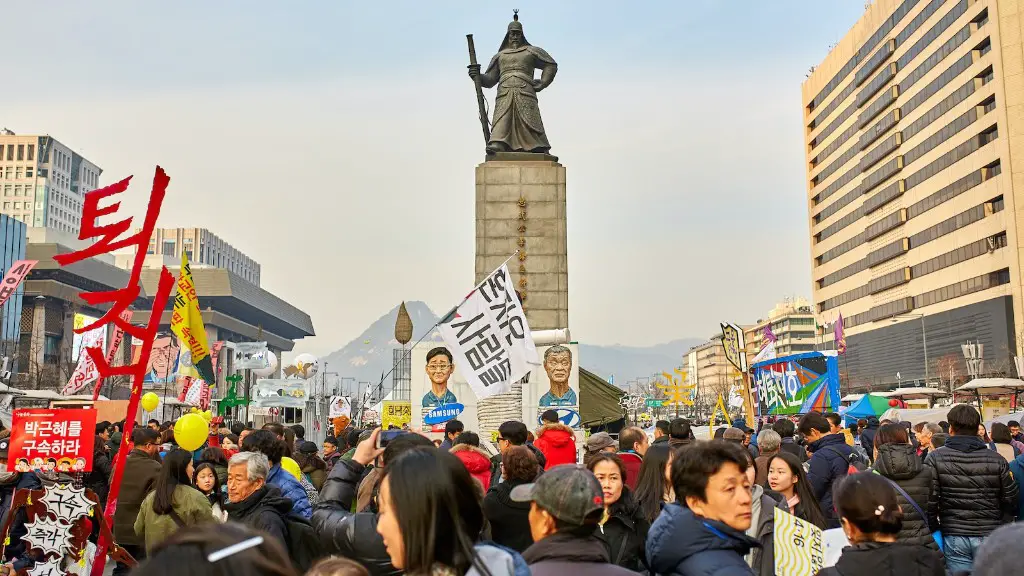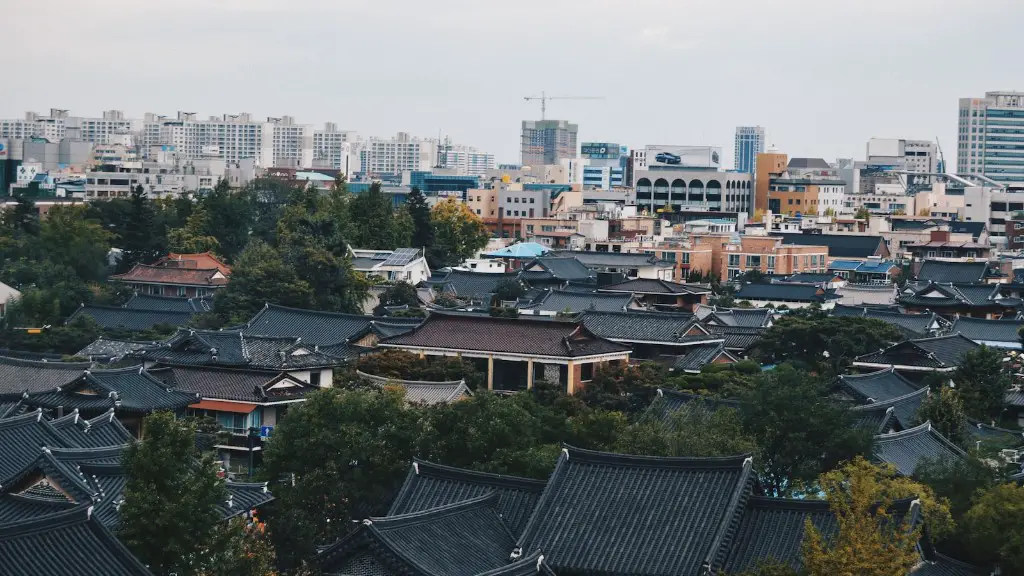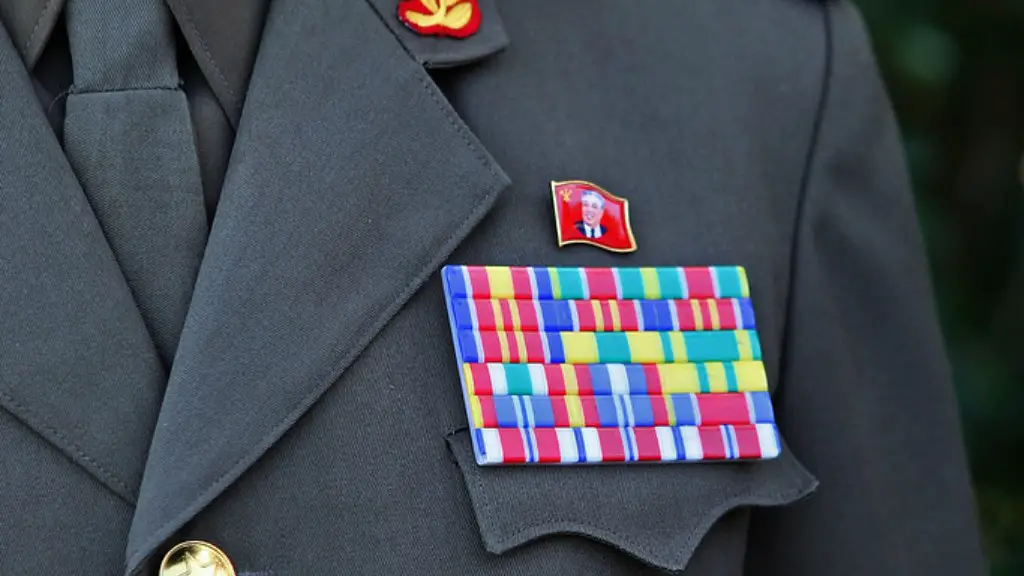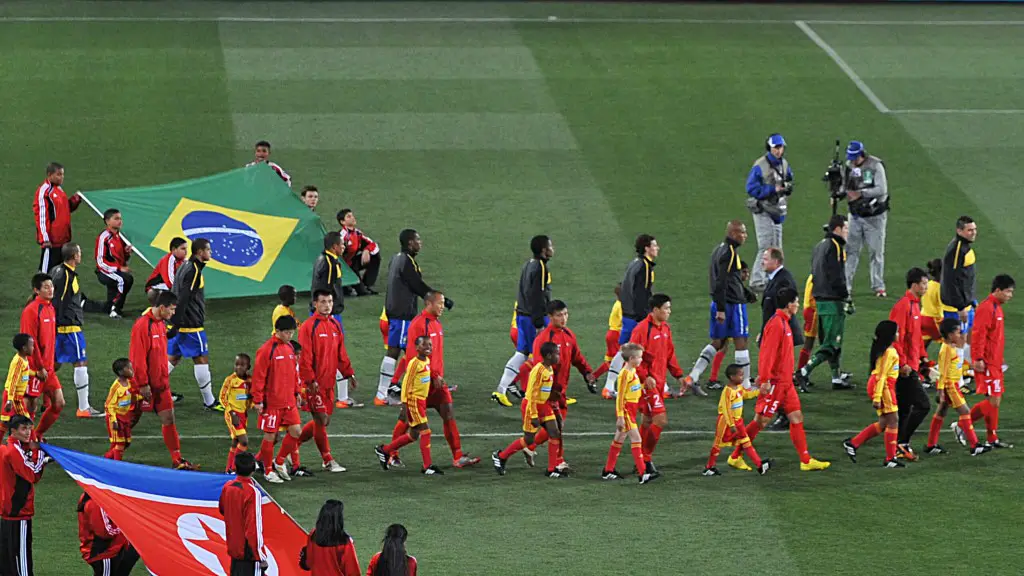The mysterious and potential nuclear threat posed by North Korea has captivated the world, but who is actually backing the rogue state? With an oppressive regime under the control of Kim Jong-un, questions remain over who is providing support and stability to the hermit kingdom and an isolated population of nearly 25 million people.
North Korea’s closest ally and benefactor is China, their only major superpower partner. China’s support for North Korea has been extensive for decades, both political and economic. As a major international player, China has played a significant role in mediating between North Korea and its enemies, engaging in negotiations and providing a buffer against UN sanctions. As part of its support for North Korea, China provides physical protection from external threats and helps to subsidize the heavily impoverished hermit kingdom.
Notwithstanding its totalitarian government, North Korea’s is still accepted as a member of the United Nations, with Russia, India and South East Asian countries such as Malaysia and Singapore also providing diplomatic support. China is also taking a leading role in communication and economic ties. There are also reports of nations such as Sudan and Eritrea providing military assistance, although no concrete evidence has yet been produced.
While South Korea has made repeated attempts to engage in talks and reduce tensions between the two countries, its diplomatic interests have been hampered by the influence of the US. The US has a long-standing policy of preventing North Korean nuclear ambitions and has sought to contain and isolate the state by implementing sanctions and other measures.
This policy has had a devastating effect on the average citizens of North Korea, with food shortages and other basic necessities in short supply. Despite this, North Korea’s government has been able to maintain its existence largely due to the support of China and other countries.
In recent years, there have been increasing reports of North Korea attempting to branch out economically, diversify its sources of revenue, and strengthen its trading ties with other nations. China is North Korea’s largest external investor, with reports of Chinese companies constructing infrastructure projects and increasing the number of cross-border ventures. South Korea has also made small yet limited investments with its northern counterpart, raising the number of South Korean companies operating in North Korea to more than thirty.
These economic policies, while small in comparison to the secretive nature of the North Korean state, have had a positive effect on the economic situation of the country. The Chinese government has also provided economic aid to strengthen modernization efforts, opening nine new economic development zones to promote trade, while South Korea has provided food, medical supplies, and other humanitarian support.
The Reality of North Korea’s Economy
It is clear that the secure and continuing economic prosperity of North Korea relies heavily on its participation in the broader world economy. Despite international pressure, the North Korean government has been able to take advantage of the volatile trading environment and has cultivated a range of new relationships with South East Asian and African nations, gaining access to resources and goods that can be exported and used to grow their own economy.
It appears the country is attempting to modernize without sacrificing its commitment to selling arms and ammunition. The country is positioning itself as producer of medical and defense technologies, as well as clothing and textiles, in an effort to reduce its reliance on China for survival.
What is clear is that North Korea is not able to sustain its economy by itself, and its aggressive economic expansion is not only an attempt to raise funds but also to demonstrate that it has the capacity to be a powerful player in the international arena. It is likely that North Korea will continue to rely on various nations, including China, in order to secure economic and diplomatic support.
The Risk of Nuclear Involvement
As hostilities between North Korea and its enemies continue, the potential risk of nuclear involvement still lingers on the minds of many. While the US has recently pulled out of the Joint Comprehensive Plan of Action (JCPOA), which has sought to contain the North Korean threat, the situation remains highly volatile.
The North Korean nuclear programme has been a major issue for years and it is likely that China and other countries will remain hesitant to provide support unless North Korea’s nuclear ambitions are curbed. It is also possible that North Korea’s nuclear capabilities could be used as a bargaining chip to gain access to the international community. Ultimately, North Korea’s nuclear program is a significant risk, and the backing of other countries is essential to ensure the safety of the region.
The Role of Sanctions and Blockades
In recent years, the UN has imposed various sanctions and blockades on North Korea in an attempt to force the country to abandon its nuclear ambitions and accept its neighbours as equals. North Korea has remained highly resistant to these measures, believing that they are an attempt by the international community to interfere in its internal affairs.
Despite the sanctions and blockades, some countries, notably China and Russia, continue to provide North Korea with essential aid and supplies. It is this aid that has allowed the hermit kingdom to remain in operation despite its isolation from the rest of the world.
The US has remained resistant to any attempts by other countries to assist North Korea, citing their continued human rights abuses and unwillingness to abandon their nuclear ambitions. The US has ramped up economic and trade sanctions in recent years, in an effort to force North Korea to engage in negotiations and adhere to international law.
The South Korean Perspective
The situation between North and South Korea is far from peaceful. The two nations have remained in a state of tension since the 1950s and it is unlikely that improved relations will be accomplished without outside help. Despite this, South Korea has taken steps to improve the relationship, engaging in inter-Korean family reunions, business investments, and cross-border train services in recent years.
The South Korean government has also maintained a steady and consistent policy of pursuing dialogue and working towards mutual understanding and reconciliation. It is essential for South Korea to continue to engage in dialogue with North Korea in order to reduce the risk of nuclear conflict and prevent tensions from escalating further.
From The Perspective Of The International Community
The international community has largely maintained a policy of containment and pressure on North Korea, while attempting to maintain the peace and stability in the Korean peninsula. The US and its allies have imposed heavy sanctions on the country, which has crippled its economy and threatened to cause a humanitarian crisis.
The UN has also sought to mediate between the two Koreas and promote dialogue, while encouraging all sides to take steps to reduce the risk of conflict. The international community has also provided aid and support to North Korea, to mitigate the effects of sanctions, and ensure the survival of the North Korean population.
The Future of North Korea
It is unclear what the future holds for North Korea. The country is protected by its partners in the international community and is allowed to maintain its economy and government on the back of their support. Despite this, North Korea’s belligerent actions, human rights abuses, and nuclear ambitions pose a significant risk and could endanger regional peace and stability if not addressed.
It is likely that North Korea’s isolation from the international community will continue, and that its threat of nuclear war will remain. As such, it is vital that international cooperation and understanding remains a priority in the Korean peninsula, in order to ensure the safety of the region and its inhabitants.
Conclusion
The recent shift in North Korea’s foreign policy and its increasing engagement with the outside world has been encouraging. It has also provided opportunities for diplomatic and economic engagement, as well as aid in the form of humanitarian assistance and economic development that could eventually lead to improved relations and a peaceful resolution to the current crisis.
The issue of who is backing North Korea is complex and multifaceted. It is clear, however, that for now, North Korea continues to rely on the support of China and other countries to ensure its survival. As the situation evolves, it will be essential for all sides to maintain dialogue and work towards a peaceful resolution that benefits all.




